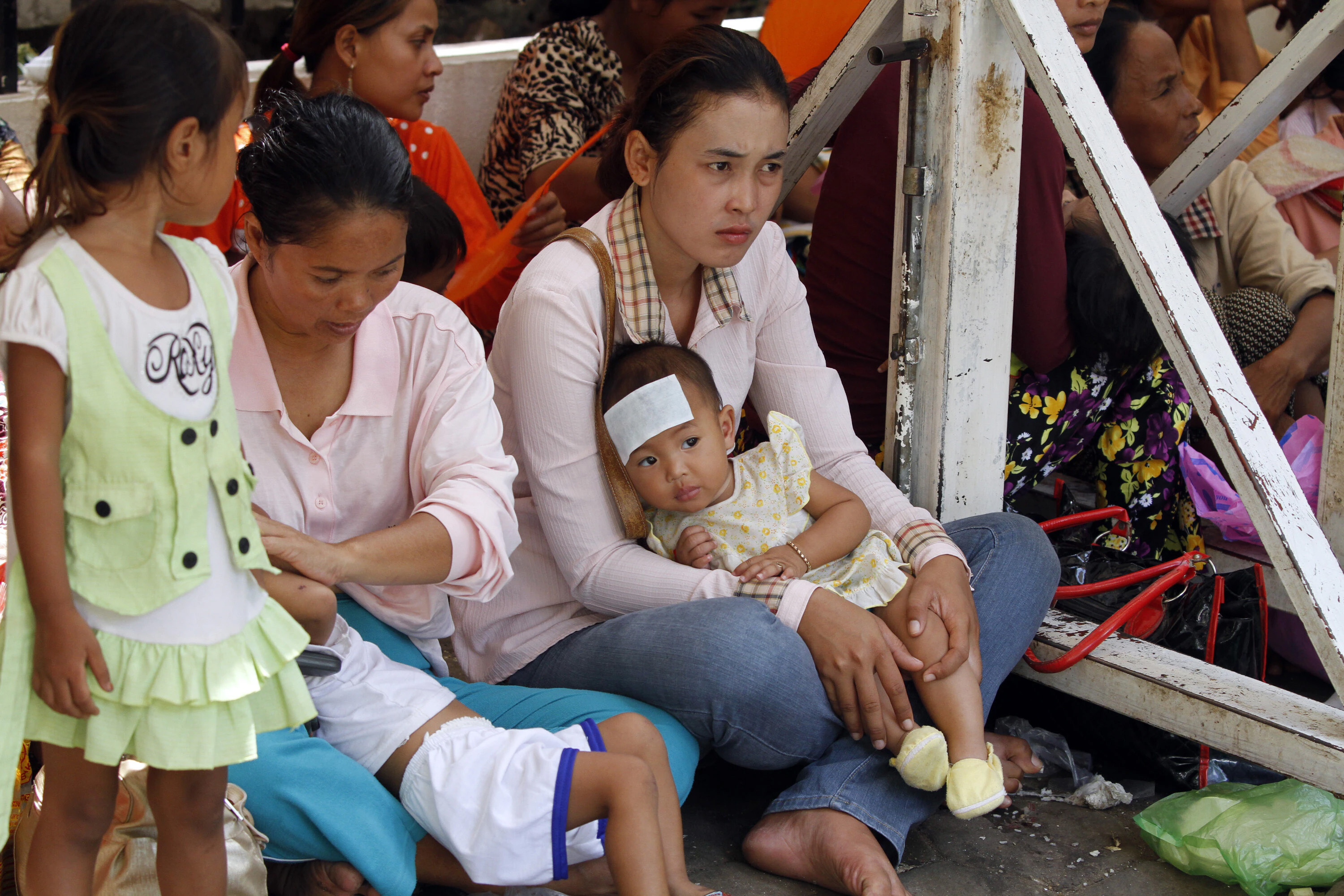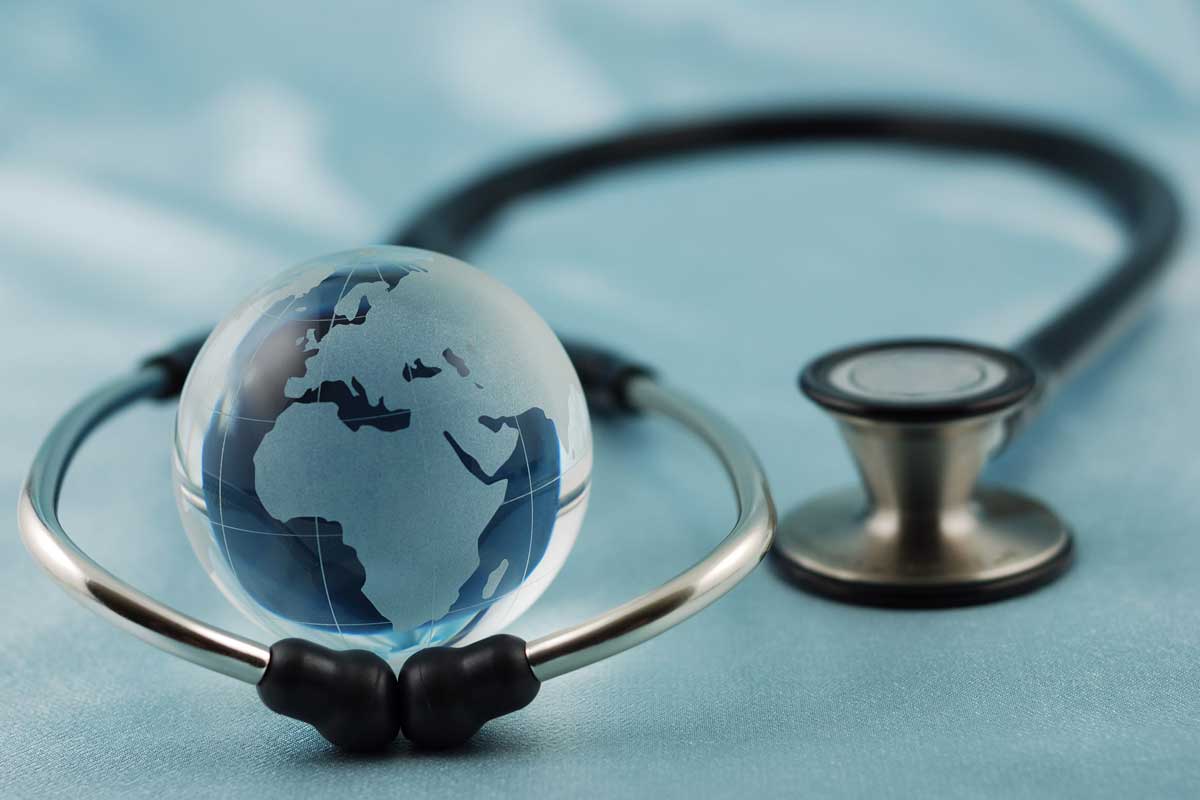Why health budgets must not be cut amidst political and economic turmoil
We must protect health budgets to safeguard our populations and ensure that our health systems are resilient to inevitable future challenges. Healthier populations are happier, more productive and take an active role in the workforce. We must invest now if we are to prepare our health systems for future crises.
- 9 September 2022
- 6 min read
- by World Economic Forum

In the current global situation, characterised by political and economic uncertainty, high energy costs, labour shortages and the rising cost of living, many government finance ministers around the world face difficult choices as they seek to balance their books while meeting other calls on their budgets, including defence. This makes it all the more important to protect and, where possible, to increase health budgets to safeguard our populations and ensure that our health systems are resilient to inevitable future challenges. Failure to do so means we learned little from the COVID-19 pandemic.
Resilient health systems are a vital insurance policy for societies
The past three years taught us a fundamental lesson. If we fail to invest in preparing our health systems for unexpected shocks, in this case, a pandemic, but also financial crises or natural disasters, we will pay more in the long run. In general, countries that had invested in preparedness and were able to respond flexibly to the initial COVID-19 waves, had space to develop a comprehensive response to address the spread of infection. Those that did not, were more likely to go into crisis mode, fearful that their health systems would be overrun. Investing in health systems is like an insurance policy: countries can take a risk by not paying the premiums, but in these uncertain times they are gambling on the lives and wellbeing of their populations.
Health is a driver of economic growth
Economic growth in the modern world is driven by labour, capital and knowledge. We take it for granted that governments will invest in these by creating incentives that encourage, for instance, research and development (R&D), education and the building of physical infrastructures. But, we also know that healthier populations are happier, more productive and, of particular importance at a time when many countries are experiencing falling birth rates, take an active role in the workforce.
We also know that health is an important component of the economy in its own right in several ways. It provides the rewards of scientific innovation, recognised by those countries that have adopted ambitious life-science strategies. And, health facilities benefit their local economies, not just as employers, but through their support of local suppliers of goods and services. This is especially important in areas that have experienced large-scale deindustrialization.
Health strengthens public participation and solidarity
A combination of a decade of austerity and a pandemic has led to many people feeling left behind. Those who were just about managing, in precarious circumstances, have seen few of the fruits of economic growth and they also suffered most during the pandemic. Understandably, these disenfranchised people see political processes and the institutions of government as being for the benefit of others. They are, therefore, more open to the appeals of those who seek, for their own purposes, to create and exacerbate divisions in society. This is undermining the solidarity on which social and economic progress depends. History provides many warnings of the consequences of such divisions, from crime to inter-communal violence. Everyone must feel able to participate and make a valuable contribution to society, but this can only be achieved if everyone believes they have a healthy future that they can look forward to and one worth investing in.
What needs to change?
We must invest now to prepare our health systems for future crises, focusing on some of those elements that have historically attracted fewer resources, such as public health and primary and mental healthcare, especially for those who are least likely to seek healthcare and least able to pay for services. Given that healthcare will always be labour intensive, even if we can harness new technology, we must invest in the health workforce, with measures that attract and retain these essential workers.
Adopting One Health thinking
We know that if we had invested more in preparedness, we would have reduced the costs of the pandemic. But this requires a new way of thinking, based on One Health, meaning the set of relationships between the health of humans, animals and the environment. Wealthier countries can do this with their own resources, building on synergies across government departments that deliver important co-benefits. Poorer countries will need help. This means that bilateral and multilateral providers of international aid must direct resources appropriately, to build prevention and preparedness capacity globally, recognising that global pandemic prevention and preparedness is only as strong as the weakest link, as COVID-19 brutally demonstrated.
Have you read?
There should be a substantial reallocation of development assistance for health towards global functions, such as R&D into medicines and vaccines for diseases prevalent in poor countries and for tackling antimicrobial resistance (AMR). Continuous and substantive funding should also be channelled to the newly-established Fund for Pandemic Prevention, Preparedness and Response, developed with leadership from the United States, Italy and Indonesia as part of their G20 Presidencies, and with broad support from the G20 and beyond.
Differentiating health spending
We need to work with the relevant international organizations to change the current System of Health Accounts (SHA). This fails to distinguish between health spending that is routine, with a contemporaneous and direct impact on health, and health spending that is frontier-shifting, where expenditure does not necessarily have a short-term impact on health, but either delays or prevents the onset of disease or which improves the efficiency of care delivery through technological progress.
While the need for green investment is widely accepted, many of the same arguments apply to health. National, European and global regulators must implement disclosure and reporting standards that can increase transparency in how governments have identified and responded to threats in the area of One Health, such as pandemics and AMR, just as they do with environmental, social, and governance (ESG) threats. This will help to incorporate threats to health, and their consequences for society and the economy, into risk management strategies and frameworks.
Policymakers have the power to make choices today that will decide whether future generations are resilient and able to successfully cope with multiple and complex threats. We know what is at stake. The time to act is now.
While the need for green investment is widely accepted, many of the same arguments apply to health. National, European and global regulators must implement disclosure and reporting standards that can increase transparency in how governments have identified and responded to threats in the area of One Health, such as pandemics and AMR, just as they do with environmental, social, and governance (ESG) threats. This will help to incorporate threats to health, and their consequences for society and the economy, into risk management strategies and frameworks.
Policymakers have the power to make choices today that will decide whether future generations are resilient and able to successfully cope with multiple and complex threats. We know what is at stake. The time to act is now.
Written by
Dr. Hans Kluge, Regional Director, Europe, World Health Organization (WHO)
Professor Mario Monti, Head of the Pan-European Commission on Health & Sustainable Development, former European Commissioner and former Prime Minister of Italy
Website
This article was originally published by the World Economic Forum on 7 September 2022.









